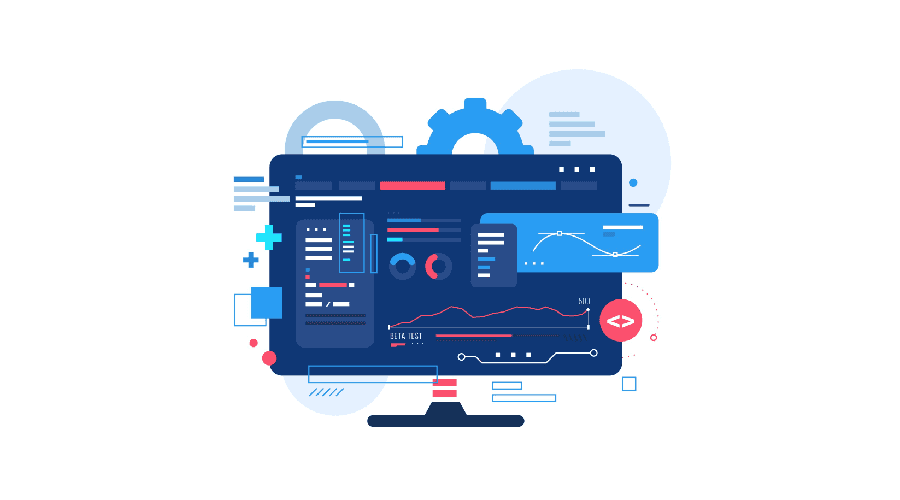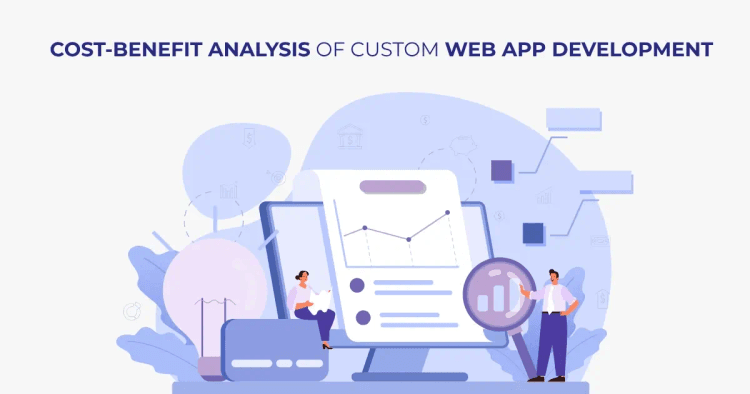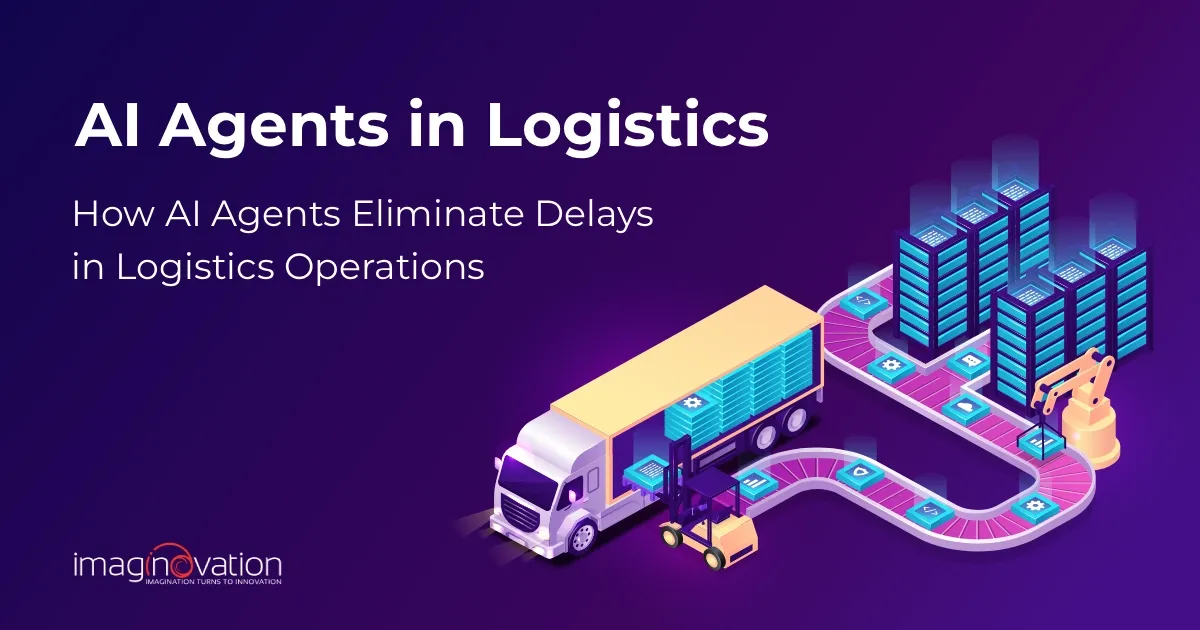To estimate the cost of building a website or an app, use our app cost calculator tool.
In the ever-evolving realm of technology, businesses face a pivotal decision: whether to opt for off-the-shelf software or invest in custom web app development. It's a choice that can significantly impact your bottom line and overall efficiency.
As a business leader in the digital age, you're acutely aware that every expenditure must be justified by tangible returns. Enter the world of cost-benefit analysis, a compass guiding you through the complex landscape of custom web app development.
In this comprehensive guide, we will dissect the "Cost-Benefit Analysis of Custom Web App Development." We'll navigate through the intricacies of this decision-making process, breaking down the pros and cons, potential pitfalls, and, most importantly, the tangible benefits your business can reap.
Join us in this exploration where technology meets strategy, and where informed choices lay the foundation for digital success.
Understanding Custom Web App Development
Think for a moment—you may need web apps for several purposes, such as managing inventory or customer relationship management. A custom web app solution allows you to create a highly interactive web app (or a dynamic website). In short, a custom web application is a specialized software built to address the unique needs of your business.
Custom web app development services generally cater to various types of web apps. Thus, it would help to learn about the apps to check if they fit the company's requirements. Next, developers can customize it further based on the unique needs.
The customized web app solution offers a tailored experience for customers, which helps boost customer satisfaction and loyalty. Moreover, next-gen web apps can revolutionize your business and help you gain a competitive advantage.
Custom vs. Off-the-Shelf Web Apps
Now, deciding whether to go for a custom web app or a ready-made, off-the-shelf web app is a big choice for your business.
Let's use a simple analogy. Imagine going to a restaurant. Choosing a dish from the menu is like buying pre-made software—it's quick and easy, but it might not be exactly what you want. Now, suppose you have special dietary needs, like gluten-free food.
In this case, you'd ask the chef to make something special just for you, maybe even picking your favorite ingredients. This is what custom web app development is like. It's all about making something that fits your unique needs perfectly.
Off-the-shelf apps are like those standard menu items. They're made for everyone, so they might not fit your business perfectly. Custom web apps, on the other hand, are made from scratch with your specific needs in mind. They're like having a meal made just for you.
Commercial Off-the-shelf Solution
Pros:
- Speed of deployment: can be used immediately after purchase
- Proven reliability: COTS is generally for the masses and hence, it tends to be well-tested and reliable
- Cost-effective: initial cost is generally lower than custom-developed software
- Community and support: as there is a broad user base, there's a wider community for support
Cons:
- Generic solution: COTS is designed to cater to the masses, and as such does not fit the specific needs of the business
- Integration issues: integrating COTS with existing OS can be challenging
- Limited customization: the degree of customization is limited
- Ongoing costs: though initial prices are lower, the ongoing subscription fees and maintenance costs are potentially more expensive than a custom solution.
Custom Web App Solution
Pros:
- More significant ROI: custom web app solutions are designed specifically for the business and thus offer a more substantial ROI.
- Greater scalability: offers complete flexibility and allows better scalability and integration opportunities
- Better security measures: custom solutions have special security measures that make things harder for hackers to hack into the site
- Complete ownership: the solutions offer full ownership over the site, and there are no licensing costs, too
Cons:
- More time to develop: while COTS can be immediately used post-purchase, custom software development can be a lengthy process
- Initial investment is higher: custom solutions will be more expensive than the commercial counterparts
- Maintenance is more costly: software maintenance, including performance optimizations, bug fixes, backups, and testing, shoots up the costs in comparison to COTS
- Needs more management involvement: custom web app needs more participation from the company management because they need to be aboard with every aspect of the site development
The Cost Side of the Equation
Yes, you're right! There's an app for almost everything. The global progressive web apps market is expected to reach US$ 10,149 Million by the year 2027. The towering figures speak volumes.
As a business entrepreneur, you would wish to know the cost of developing a custom web app. A great way to understand is to learn how to break down development costs before you want to build one.
Vision and Ideating Phase

The first step to the web app development project starts with having an idea. The stage plays an equally critical role in cost estimation. Let's look at some points that are important in cost estimation at this stage.
Idea Complexity:
What app would you like to build? For instance, if you wish to develop a simple gaming app, it is cheaper. However, when you think of web apps like eCommerce or workflow management apps, they are complex; and complex web apps can cost over $100,000.
Category of Web Apps:
The costs may vary depending on the type. The common types are:
- Multi-page Applications (MPAs) like eBay or Amazon
- Single-page Applications (SPAs) like Google Drive or Gmail
- Progressive Web Apps (PWAs) like Starbucks or Pinterest
Compliance with Regulations:
Those who wish to launch a Fintech or Healthcare app must ensure they meet the requisite regulations.
For example, a healthcare app needs to be HIPAA-compliant and FDA-compliant. Plus, one needs to ensure compliance based on the country of operation. All the regulatory requirements must be met when developing an app, and the cost to create a web app would vary accordingly.
Thus, based on the complexity of the idea, the features to be incorporated, the type of web app, and the regulatory requirements to be met, you may need to hire a proficient partner or an expert team. Consequently, it will affect the custom web application development cost.
Planning and Analysis Phase
The initial phase of the web app development will have prime elements like market analysis, competitor analysis, and setting business goals based on your target audience. When these aspects are analyzed, it will help to estimate the web app development cost. Moreover, it will also be great to set the timeline for development. The insights from this phase help with overall cost reduction, offer better service, and generate prototypes.
Design Phase
The design phase of custom web app development includes UI and UX aspects. In this phase, the UI, the structure, and the usability facets of web design are planned. Custom UI/UX design services typically cost more than template solutions. Designers work on making app interfaces intuitive, pleasant in terms of looks, and convenient to use.
In terms of cost, a simple landing page like Shopify can take a maximum of 16-20 hours, with prices ranging from $1,600 to $2,000. Moreover, if the page contains 3D animations, the costs will go up to $8,000 to $10,000.
When working on the design, designers try mind mapping to create a visual representation of the design elements of the web app. Moreover, they plan the accessibility and navigation facets, and the UI elements to be implemented in the final design.
Development Phase

The development phase is another critical stage that impacting the web app development cost. It comprises frontend development, backend development, code review, and testing.
The development costs are based on many factors, which include:
- the development platform
- the complexity of the app
- location of the development team
- the features and functionalities required
Bottom line: Ultimately, when looking at development, simple applications can range from $70,000 to $100,000, and the cost of building a complex app can touch more than $200,000. Plus, the developers will take around 3-4 months to create a simple app and over nine months plus for a complex one.
Here's a peek at the custom web app development cost breakdown.
- Design: $5,000 to $30,000 (based on the developer team, the team's location, and the complexity of the app)
- Development: $70,000 to $3,00,000 plus (based on the size of the project and the complexity)
- Testing: $10,000 or less
- Maintenance (keep reading to learn more): $2,000 to $3,000 a month (you can budget 20% of the development cost for maintenance)
Long-Term Costs: Maintenance and Upgrades
Investing in a custom web app's maintenance, scalability, and security facets is critical because doing so can only prevent failure. In today's rapidly changing market scenario and the advancement of technologies, there are constant changes in user preferences, and the app developed must be in sync. It considers factors such as fixing bugs, introducing new features and functionalities, focusing on system updates, etc. Moreover, there are other maintenance charges, like CDN, servers, and data storage.
Thus, when one looks at the average app maintenance costs during the first year after launch, the prices of maintaining an app can touch almost 50% of the initial app development cost. The costs cover the various improvements that must be tweaked to suit the users' feedback. Later, the yearly app maintenance cost can touch anywhere between 15% to 20% of the initial cost.
Yet another facet is change requests made by business owners when the development process is in progress. For example, an app entrepreneur may decide to include a payment gateway mid-way through development because its competitor has the feature. The inclusion will surely increase the cost. For example, a client analyzes its competitors and decides to test a new MVP of the eCommerce app with payment gateways, which will surely increase the cost.
Ultimately, the upkeep of the app will run into long-term costs, which also ensures the quality of the app.
Analyzing the Benefits
Custom web app solutions offer several benefits. Businesses benefit from a tailored solution that fits their specific needs. The solution can improve customer satisfaction, operational efficiency, and business growth. Moreover, with full integration capabilities, scalability, and updates to suit the evolving needs of customers and the market, the solution can adapt quickly to your business's changing needs.
Here are some of the most significant benefits:
Customization and Scalability
The chances are that your business will look different from what it is today. With a custom web app solution, it will be easy to shape it to match your user experience. The solutions offer excellent flexibility levels, allowing you to make quick tweaks. In short, customization and scalability are the prime pillars that help provide a tailored experience to your customers.
Well Thought-out User Journey
A custom web app solution lets you take complete responsibility for every facet of the user journey. Thus, you can ensure that your customers engage and interact with your software and want to stick around. It goes without saying that you have the opportunity to properly plan out the solution and deliver a highly positive experience.
Increased efficiency
Custom web app solutions can streamline business processes and eliminate repetitive functions. It helps save a lot of time for the employees, and they can work on up-to-date data, increasing efficiency.
Outstanding Security Controls
Developing a custom web app means that you can ensure enhanced cybersecurity for the solution. When developed correctly, custom solutions can be harder to crack. Plus, they are less prone to cyber risks and vulnerabilities. The developer team can implement the right cybersecurity features, from two-factor authentication to biometrics, and ensure improved security.
Maximizes Technology Investment
The developer team can extend your current CMS instead of introducing entirely new software. Businesses can maximize their technology investment by using tools that the user base is already familiar with. It also helps in reducing the learning curve for users.
ROI of Custom Web Apps
When we talk about the Return on Investment (ROI) of custom web apps, it's like looking at how much value they add compared to what they cost. Custom web apps can bring a lot of benefits to your business, both in dealing with customers and in improving internal processes. Let's break down some of these advantages:
Mobile-Friendly Apps
Custom web apps are like a Swiss Army knife for mobile users. They use HTML5, so they work great on smartphones and tablets. Your users can easily access these apps through their mobile browsers, making it super convenient for them to connect with your business.
More Attractive
Think of your web app as a storefront. The design team can make it look stunning with rich graphics and colors. A good-looking app isn't just nice to have; it draws more people in, helping to boost your brand and potentially increase your profits.
Customer-Faced App
Custom web apps are like your business’s personal assistant for your customers. They're made to meet your customers' specific needs, making their experience better. This not only helps in making more sales but also in keeping your customers coming back.
Internal Workplace-Focused App
Here, custom web apps are like a turbocharger for your business's internal workings. They aim to make things more efficient, whether that's saving time for your employees or streamlining your supply chain management. In the long run, these improvements can lead to significant cost savings and a better bottom line.
Conducting a Cost-Benefit Analysis
Conducting a cost-benefit analysis is like being a savvy shopper who wants to make sure they're getting the best value for their money. In the context of custom web app development, it's about carefully weighing the costs against the potential benefits. This process helps in making informed decisions, ensuring that the investment in the project will pay off in the long run.

Review Project Goals and Objectives
Start by clearly defining what you want to achieve with your web app. Think of this as setting the destination for your journey.
Review Historical Data
Look back at similar projects you've done before. It's like checking old recipes to see what worked well. Pay attention to key success indicators like return on investment (ROI) and payback period.
Identify Project Costs
List all the possible costs—expected and unexpected. This includes everything from immediate expenses to future costs, both tangible and intangible.
Identify Benefits
Now, think about the potential gains. How much extra money could the project bring in? What are the long-term advantages? Make sure to consider all possible benefits.
Define a Project Timeframe
Align the costs and benefits over a specific timeline. It’s like planning a budget for a vacation, knowing what you'll spend and gain over time.
Assign a Monetary Value to Costs and Benefits
Put a price tag on everything, from the cost of hiring new staff to the benefits of improved efficiency. This step is like making a detailed shopping list with prices.
Create a Timeline for Expected Costs and Revenue
Plan when you expect to incur costs and when you anticipate reaping the benefits. It's similar to plotting out a financial calendar.
Compare Costs and Benefits
Finally, tally up the total costs and benefits. Remember to consider factors like inflation and the payback period. It’s like checking your shopping receipt to ensure you got what you paid for.
Choosing the Right Development Partner
A proficient partner can ensure the development of a robust and top-notch quality web app solution. Therefore, technical expertise and a proven track record of successful projects with experience in the relevant technologies for your project can help when selecting a development partner.
Collaborating with a proficient partner is a strategic decision that can impact the cost-effectiveness and success of the project. Thus, remember to ensure that the company can help you with:
- Technical expertise, latest design trends, and development best practices
- Strategic planning right from the project initiation
- Roadmap to optimize web development costs
- Efficient resource utilization
- Ongoing support and maintenance
- Developing custom web app solutions with scalability in mind and future-proofing
- Optimal functionality of the solution
- Top-notch security and ensuring requisite compliances
In conclusion, collaborating with a development partner is a strategic investment. A well-thought-out approach to cost management in alliance with the partner can help with a game-changing solution that can propel your business.
Build a Successful Web Application with Imaginovation
Custom web app solutions can offer significant ROI and deliver outstanding customer satisfaction. If you want to develop a game-changing web app, talk to us. We can help walk you through the design and development of robust custom web app solutions.
We are an award-winning web and mobile app development company in Raleigh with ample experience, and we can help you build robust web apps and best-in-class solutions.
Let’s talk.











